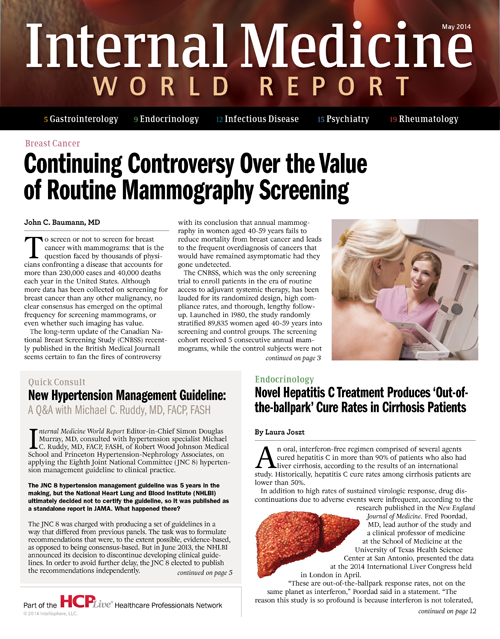Measles Cases Continue to Crop Up in the US
Although measles were reportedly eradicated from the United States in 2000, cases of the highly contagious respiratory illness continue to be imported into the country and transmitted locally within it.

Although measles were reportedly eradicated from the United States in 2000, cases of the highly contagious respiratory illness continue to be imported into the country and transmitted locally within it, according to a recent Morbidity and Mortality Weekly Report (MMWR) from the US Centers for Disease Control and Prevention (CDC).
Between January 1, 2014, and April 18, 2014, the California Department of Public Health (CDPH) received reports of 58 confirmed measles cases in patients ranging in age from 5 months to 60 years — the highest number of reported cases for a 3-month period since 1995. As of April 18, one dozen hospitalizations had been attributed to measles.
According to Jennifer Zipprich, PhD, and her colleagues from the CDPH and University of California, San Francisco School of Medicine, 93% of the 58 measles cases were linked to virus importation, and 47 cases were associated with 12 measles clusters, including 9 outbreaks. Transmission occurred in healthcare settings for 11 cases — 6 of which were transferred among personnel — though other settings included households, a church daycare center, and a school.
Most of the 58 patients were either unvaccinated or had no vaccination documentation available. Of the 25 patients who were known to be unvaccinated, 19 (76%) had philosophical objections to vaccinations, 3 were too young to be vaccinated, and 3 were unvaccinated for unknown reasons. Eleven (19%) had documentation of 2 or more valid doses of measles, mumps, and rubella (MMR) vaccine, including 2 children and 9 adults. The 3 healthcare personnel members had documentation of serologic evidence of immunity prior to exposure, and another patient was found to have serologic evidence of immunity when tested before symptoms began.
The report noted 17 of the imported measles cases involved persons who traveled to or from the Philippines — a country that has been experiencing an “explosive” outbreak of measles. According to Zipprich and her coauthors, the increase in importations from this outbreak and subsequent transmissions in certain US settings highlights the importance of ensuring age-appropriate vaccination in those traveling to areas where measles is endemic, as well as maintaining high vaccination rates at the national and local level. Promptly identifying patients with suspected measles and implementing appropriate infection control could reduce transmissions of the respiratory illness in healthcare settings, the authors advised.
